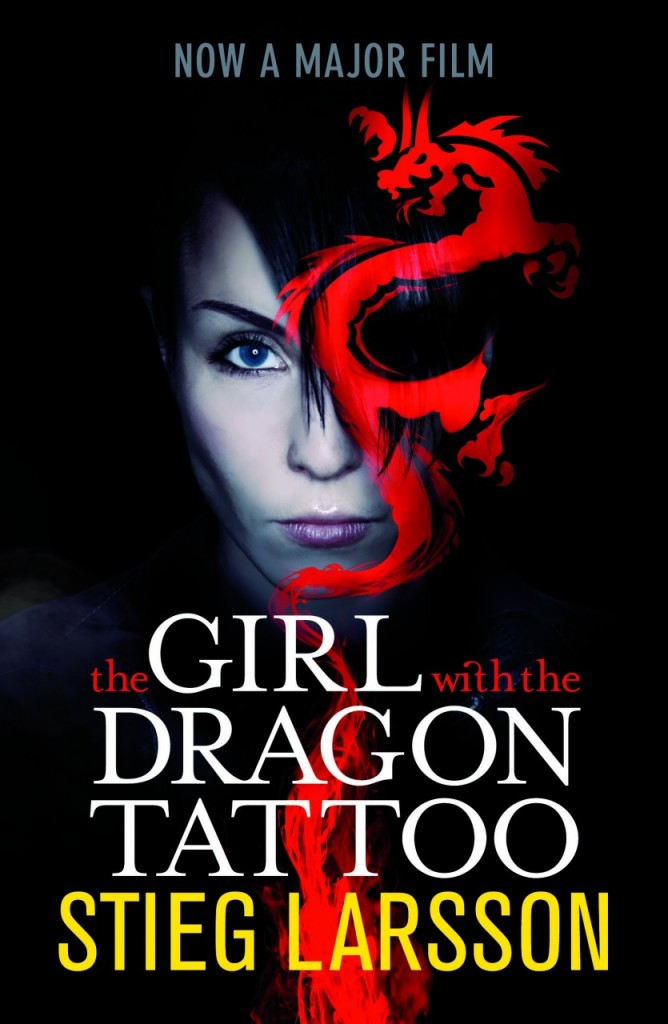 McCartney wrote to Lennon “You took your lucky break and broke it in two”. The Girl with the Dragon Tattoo takes its lucky break and breaks it into at least three or four. It starts out as an exciting story about journalism, white-collar crime, and ethics, and ends up trying to be American Psycho. The sleazy human interest elements ruin the story, which was a shame, because the story was great. Never have I seen a book so in flight from its strengths.
McCartney wrote to Lennon “You took your lucky break and broke it in two”. The Girl with the Dragon Tattoo takes its lucky break and breaks it into at least three or four. It starts out as an exciting story about journalism, white-collar crime, and ethics, and ends up trying to be American Psycho. The sleazy human interest elements ruin the story, which was a shame, because the story was great. Never have I seen a book so in flight from its strengths.
The story is about journalist Mikael Blomkvist, who has just lost a libel suit against a crooked industrialist. With his professional reputation in tatters, and a prison stint looming, he accepts a strange proposal. Forty years ago, the daughter of a legendary Swedish businessman went missing, and a member of the family might be guilty of her murder. Blomkvist must investigate the massive Vanger clan, and try to warm up a case so cold that it’s covered in permafrost.
“Businessman” is one of fiction’s ubiquitous code words. In a porno, it means you don’t satisfy your wife. In a family film, it means you’re a type-A workaholic who forgets his son’s birthday. In a Michael Moore film, it means you’re an amoral monster who probably belongs in a room with padded walls. Stieg Larsson takes no half measures, and provides us with a few businessmen of each description. Some of the Vanger family are nasty, which is troubling. Some of them seem nice – which is even more troubling, because they wouldn’t be in a book like this if they were nice.
The Girl in the title is Lisbeth Salander, a computer hacker. She’s an interesting and marketable character, but the book gives her little to do. She commits a few computer crimes and gets even with a rapist. This is mostly Blomkvist’s show, as the strange story of the Vanger clan uncoils like a snake in the grass. Each discovery raises new questions, and new dangers – some people aren’t happy to have a disgraced journalist rattling the local skeletons.
The book was fine up until this point, and then all manner of fecal products started hitting all manner of spinning blades. There’s a sudden and implausible serial killer plotline, and a Saw-esque torture dungeon…all I could think of was “what?” I don’t have an issue with anything in the book for it is, but they make no sense with what went before. Part of what I liked about Dragon Tattoo was its grounding in reality, and suddenly all of that was yanked away. The sudden twists and turns into B-movie gore porn only succeeded in giving me whiplash.
American Psycho worked at a certain level, but that was because you make concessions to it (it’s a heavily stylised book, it’s metaphorical, it’s told by an unreliable narrator.) Put elements of its plot in a John Grisham book and they’d just seem unbelievable and ridiculous. A book has to have a certain internal logic, an unspoken agreement of what can happen and what can’t. All Dragon Tattoo does is succeed in being a malformed literary chimaera.
The final pages just screw things up even more, with characters taking visits to Australia (??), while the reader gets bodyslammed with plot twist after implausible plot twist. The result is a huge, overstuffed, unconvincing mess: too many reveals, too many changes of motivation, too many themes, too many characters, and not enough sanity. Reading Dragon Tattoo is like going for a car ride and finding that your destination is a beach, an amusement park, and a zoo all rolled into one – with the rollercoaster awash in seawater and tigers climbing the Ferris Wheel.
No Comments »
Comments are moderated and may take up to 24 hours to appear.
No comments yet.
